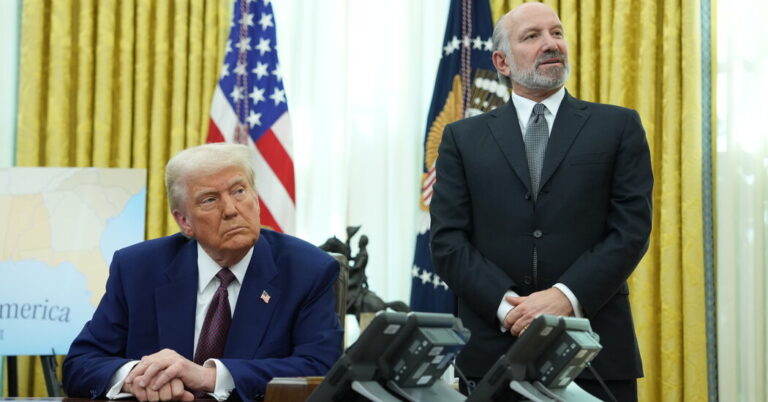Here is the result in plain text:
On Wednesday, Prime Minister Mark Carney’s election campaign had brought him to the bridge between Windsor, Ontario, and Detroit, over which $300 million worth of auto parts cross daily.
He unveiled a series of promises of programs for workers and auto-related industries that would be rolled out if President Trump imposed tariffs on products from the Canadian auto industry. Among them was a proposed fund of 2 billion Canadian dollars to reshape the industry for a future without the U.S. market.
The stakes are high. Cars and auto parts are the country’s second-biggest export by value and an employer, directly and indirectly, of about 500,000 people, accounting for 10 percent of manufacturing gross domestic product.
But what Mr. Carney, nor anyone else in the Canadian government, knew at that time was that a few hours later the program would no longer be something for an emergency situation.
Mr. Trump, without first informing Canada, announced that he was imposing 25 percent tariffs effective April 2 on all imports of cars and auto parts, with no exemption for Canada.
The parts industry in Canada will be devastated, and it will be devastated quite rapidly.
Parts makers face two problems. The profit margin on parts is a fraction of the 25 percent tariff rate, so their operations will become deeply financially unsustainable. At the same time, Mr. Mordue doesn’t expect that the automakers will immediately walk away from their multibillion-dollar assembly plants and their skilled and trained employees.
If this goes through, nothing good happens for the Canadian automotive industry. They will scramble, and they will find workarounds. But those workarounds will ultimately only delay the eventual withering of automotive manufacturing.
As the week ended, Mr. Carney and Mr. Trump had their first telephone conversation. The president dropped his rhetoric about making Canada the 51st state, and the two leaders described their talk in positive tones. But Mr. Trump later said that his tariffs against Canada were “absolutely” coming on April 2.
Four company-owned Tesla dealers claimed in government filings that they had sold an astonishing 8,653 cars in three days. Now, amid questions about the validity of the claims, Transport Canada has frozen the 43 million Canadian dollars in rebates they are claiming.
A partial eclipse will be visible in some parts of Canada on Saturday.
Source link




